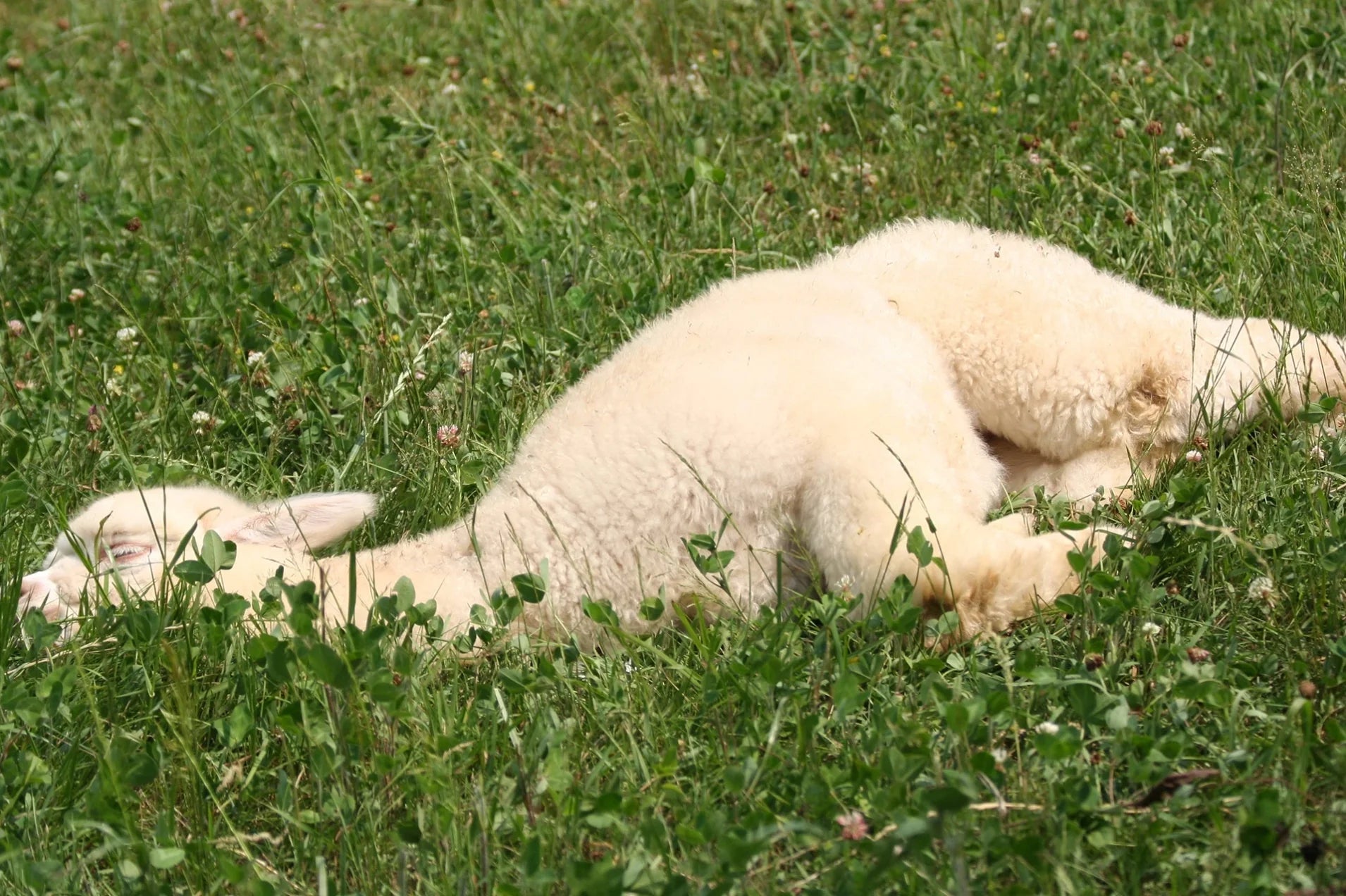The sedentary life of mid-day cocktails and leisure sports might suit some as a reward for years of hard work, but it’s not for everyone. Retirement brings an end to work and with it goes its built-in routine, social interaction, and physical activity (say, walking to the office).
What if retirement looked more like work and less like golf and sandy beaches? It’s not a completely absurd idea. In fact, Boomers of retirement age account for 37% of all small business owners, and one survey found that 54% of Americans would prefer starting a business over retiring.
Ahead, find a list of retirement business ideas, tips, and advice for pursuing entrepreneurship. And hear from small business owners over 50 who found happiness in working (after retiring from working).
Why start a retirement business
Research finds that Americans staying in the workforce cite financial stability, access to benefits, and physical ability as reasons to not to rush retirement. The same study also found that due to the nature of jobs changing, including technology replacing manual work, many jobs have become more “age friendly.” When they do retire, some take a phased approach with part-time work for the same reasons.
If you’ve asked yourself, “Should I start a business after I retire?” the answer depends on your goals, personality, and retirement income needs. There are plenty of benefits to starting a business in retirement, while still finding room for a little R&R.
Take advantage of your experience
This demographic is well suited to entrepreneurship, due to having more life experience and fewer responsibilities. The risk may be much lower, too: for many in this age bracket, pensions can provide backup, the kids are on their own, and living expenses are typically lower.
Stay active
It’s no surprise that study after study shows staying physically active can stave off health issues and prolong your life. But keeping an active mind can also reduce the risk of dementia and Alzheimer’s.

A small business demands both physical exertion (packing orders, trips to the post office) and mental exercise (writing product page copy, planning marketing campaigns). A business run from home also allows for those with limited mobility to set their own level of activity.
Supplement your pension or income
Depending on your situation, you may be relying on reduced income after you retire. A new business could provide support for staying on top of bills, paying down debt, or tucking away for a rainy day.
Pursue a lifelong dream
If sitting around just isn’t your thing, retirement is the perfect time to find a new kind of freedom. Starting a retirement business is the opportunity to live out the dreams you may have put on hold for “someday.” Today is someday. Entrepreneurship carries less risk than it might have in your younger years, keeps you active, and can help offset the cost of a passion project.
Fund a hobby
If the goal isn’t to make money, dig into your interests and hobbies and choose something that brings you joy. Sell handmade items online or at local fairs to help pay for materials and fund a retirement hobby. This can offset the reduced income that you’ll experience after retirement.
Stay social
The passive life of retirement might feel like the opposite of freedom for some who get social interaction through their work. Removing this benefit could actually be detrimental to your health.
Though loneliness levels among those 50 to 74 have actually decreased in recent decades due to more social opportunities and access, nearly half of all Americans report feeling lonely always or sometimes.
Starting a business could replace some of that interaction—with customers, suppliers, postal carriers, and other professionals. There are also plenty of online and IRL communities for small business owners where you can get advice and meet friends with similar interests.
7 retirement business ideas to act on today
- Start a consulting business
- Make products to sell
- Start a coaching business
- Sell courses
- Offer tutoring services
- Become a reseller
- Sell services
The best retirement business ideas start from what you know. If the goal is not necessarily to make money online, dig into your interests, experience, and hobbies and choose something that brings you joy. The business ideas for retirees are infinite!
1. Start a consulting business
Retirees can leverage their years of experience and expertise in a specific field by offering consulting services. Did you work in corporate interior design? Sell consultations for smaller residential projects. Were you an investment advisor at a firm? Start your own financial consultancy and set hours that work around retirement leisure.
There are many consulting business ideas that are ideal for new retirees who want to set their own pace without stopping work altogether.
2. Make products to sell
If you occasionally sell jams or knitted goods at your church’s bazaar on weekends, you can ramp things up by starting a maker business. Consider expanding your sales channels into other local markets and craft fairs. If you’re less mobile, an online store is an excellent option for retirees, as it has the flexibility to be run from home.
What are you already doing in your spare time? Wooden dollhouses, prize-winning pies, and crocheted blankets are just a few things you can make and sell in retirement.

Trisha Trout didn’t start her handmade soap brand until after she was 50. She spun a weekend hobby into a retiree business after a family tragedy. “The best part of running my business is just the knowledge that I’m able to support myself,” says Trisha. “I’m not wealthy, but I make enough to enjoy life and help others here and there.”

3. Start a coaching business
Coaching is one of the best retirement business ideas for those with a background in business or psychology. You could start a successful business after retirement doing what you already do best. As a small business owner, you can now set your own hours at your own pace, and only take on projects that energize you.
4. Sell courses
You have a wealth of life and work experience! How can you monetize what you know? Sell digital products like video or PDF instructional courses—these require more work upfront, but have excellent margins and minimal effort in the long run.
You can also run courses from your home such as art tutorials or yoga classes, inviting students to join in person or via livestream.

Chiara Nicolanti found a way to keep her grandmother busy during the COVID-19 pandemic when lockdowns forced her in-person cooking classes to shut down. Chiara took those classes online and her late grandmother, Nonna Nerina, became the face of Nonna Live. In her memory, the business lives on, employing other retired women in her small Italian village.
Small business owners of older generations have a lot to share due to their years of experiences—and people are willing to pay for it. “I share our history and let [customers] experience a part of Italy, our family, and my grandma’s culinary secrets,” says Chiara.
5. Offer tutoring services
Teachers who love sharing knowledge but want to retire from formal education environments can consider starting a tutoring business. Tutor children, college students, or adults either in person or virtually from home through an online business. This is a great way to make money as a teacher after you retire.
6. Become a reseller
If you have retirement savings to invest in a new business, consider becoming a reseller. This involves less work than developing your own product. Starting an online store to sell goods from other brands is a great small business idea to make extra income. And, if you choose a dropshipping model, you won’t even need to handle inventory.

Sonja Detrinidad took a new hobby to the next level when she went viral on TikTok. The former mortgage professional was sourcing plants for her own garden and documenting her journey online. Soon others were requesting her services. Sonja started Partly Sunny Projects to bridge the gap between greenhouses and plant parents everywhere.

7. Sell services
As an older entrepreneur, you can sell services like landscaping or pet sitting—activities that can keep you physically active and social. This is a great way to stay connected to your local community and pick your own hours. Other services may be related to your former career. Retirees from service industries like accounting, construction trades, or wellness services may choose to downgrade from working full time to selling these services on the side&
[CALLOUT BOX] Looking to retire early? Consider following the FIRE movement, a lifestyle that seeks financial independence through self-employment, saving, and investing strategies.
Retirement business spotlight: Bernie Rothrock

When Bernie Rothrock retired after 30 years of teaching, he accepted his brother-in-law Tom’s offer to manage his alpaca ranch. Bernie and his wife had no specific retirement plans at that point and took a chance. “I had never worked with any animals whatsoever in my lifetime,” says Bernie.
When Tom passed away, much of the herd was sold, and the ranch was purchased by new owners to use as a getaway home. Since the new owners had no use for the barn, they allowed Bernie to keep 11 alpacas on the property. He continued to care for them as pets, with no intention to breed them for profit. “Alpacas are just really nice, neat little animals,” Bernie says. “And our grandkids love them.”
Bernie’s sister-in-law had a small store at the ranch. “The alpaca socks always sold really well,” he says. That’s when his son Drew suggested Bernie sell those socks online.

The resulting fiber from the annual shearing of alpacas is sent to a fiber co-op and turned into products like socks, hats, and mittens. Co-op prices are lower than wholesale for ranchers like Bernie, because he’s providing the raw materials.
Bernie initially bought $1,000 worth of socks and launched them on his own website in time for Cyber Monday in 2015. The response was overwhelming. “Within a day, I’m calling my wife and saying, ’We need more socks!’” he says.

Maximus & Penelope—named for two alpacas in the herd—became a thriving Shopify store, run by a retiree with no previous business experience. The store provided Bernie and his wife a little extra money to travel and enjoy a peaceful retirement. “I really did not have that entrepreneurial bug, if you will,” he says. “It was happenstance. Things just worked out.”
4 questions to ask before starting your retirement business
 Once you have an idea, the best way to get started is to just start. You can begin a free trial on Shopify and play with your new store before you go live. If the prospect of building a website is overwhelming, start with free resources to guide you through the process. Next, ask yourself a few important questions:
Once you have an idea, the best way to get started is to just start. You can begin a free trial on Shopify and play with your new store before you go live. If the prospect of building a website is overwhelming, start with free resources to guide you through the process. Next, ask yourself a few important questions:
1. How will you finance your new business?
What if we told you that you can start a business with a $0 budget? It’s possible. If the point of starting your business is staying active or social, there’s no need to invest a lot upfront. There are a few avenues to pursue if your project requires startup capital. Plan ahead and seek advice from a financial professional before starting your business.
Here are few tips to get you started:
- Start small. Don’t invest a ton into a business idea simply because you’re passionate about it. Test your idea with a small audience, and start with a little inventory.
- Borrow against retirement savings. In the US, you can borrow against your 401(k) like a small business loan. Check with your local government for rules specific to your country or region.
- Consider a micro-loan. Keep an eye on the SBA’s website (or your local government’s small business site) for small loans and grants specific to retirees or your age bracket.
- Keep it lean. Starting a business on a budget means leaning into free resources like logo design tools and spreadsheets to track financials.
2. Can you play to your strengths (and learn the rest)?
Bernie’s 30 years as a teacher has made him quite the wordsmith. He writes all of the site’s copy, product descriptions, and blog posts. With a little help from his son, he learned the mechanics of building and maintaining a website.
It’s never too late to learn something new. In many cities, public libraries, government-run facilities, and community groups offer free courses for seniors like basic computer skills and web design. Check listings in your area for programs catering to retirees or older folks.
3. Do you have an exit strategy?
You may retire with tons of energy and the ability to run a business on your own, but what will happen if you no longer can? What’s your plan if health issues prevent you from continuing to manage the business? Have you had discussions with your family about your wishes?
Bernie says he watched many like him enter the alpaca business at an older age. “You’re just one health issue away from no longer being able to care for your herd,” he says. That’s why he’s keeping the business small.
4. What about a family business?
Consider starting a business that brings your family together and builds a legacy for future generations to carry on in your name. Bernie and Drew might live in different countries, but the business was the catalyst for keeping them connected regularly. Bernie’s wife has even joined the team, and between caring for her grandkids, she managed the store’s social accounts.
Retirees make great small business owners
Let’s face it: You’re in the prime of your life. Ideally, you have fewer responsibilities and more savings, making the prospect of acting on a business idea all the more possible. There are plenty of retiree business ideas for every type of lifestyle you hope to have in your older years. Take those decades of experience and make extra income doing something you love.
Start a business in retirement FAQ
Can I start a business in retirement?
Many retirees are interested in starting their own businesses. However, it’s important to note that there are some risks associated with starting a business later in life. Consult with a financial adviser to see if starting a business is the right decision for you.
What’s the best business for retirees?
The best business for retirees depends on each individual’s skills, interests, and resources. However, some popular retiree business ideas include starting a consulting business, a home-based business, or a franchise.
Is 60 too old to start a business?
No, 60 is not too old to start a business. There are many successful businesses that were started by people over the age of 60.
How can I start my own business at 65?
There is no one-size-fits-all answer to this question, as the best way to start your own business at 65 may vary depending on your unique skill set, experience, and resources. However, some tips on how to start your own business at 65 may include studying your industry and sector, researching the competition, and developing a business plan. Additionally, it’s important to consult with an experienced business attorney to ensure that you are taking the necessary legal steps to establish your business.

